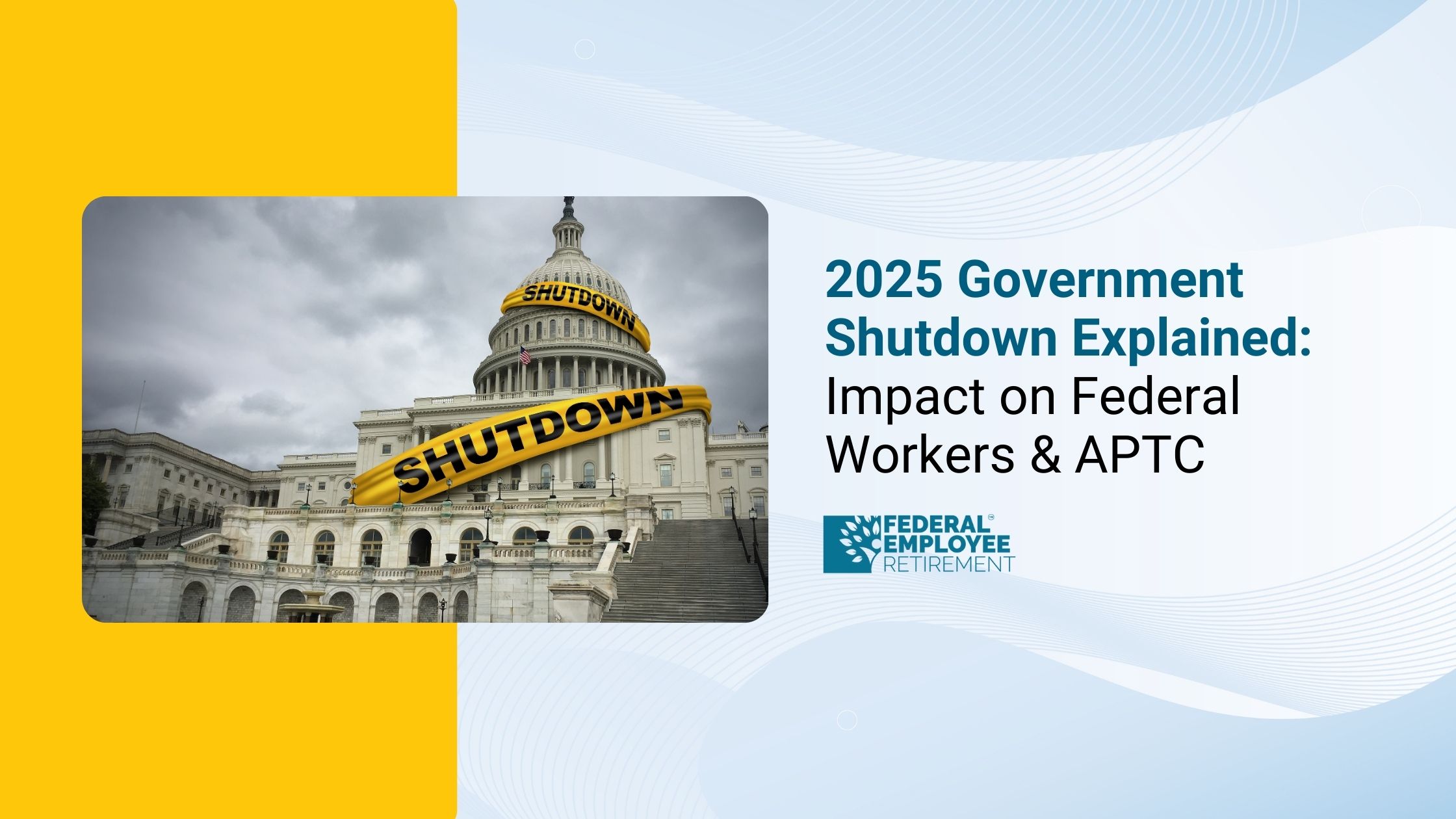You’re not alone; 4,359 federal employees booked their free review.

How US Election Impact on Retirement Plans? Affect Your Savings?
As the United States gears up for another presidential election, many Americans are wondering about its potential impact on their retirement savings. The US election impact on retirement is a topic of growing concern, as political shifts can have far-reaching effects on financial markets, investment strategies, and retirement policies. Understanding these implications is crucial for individuals planning for their golden years and those already in retirement.
This article delves into the various ways presidential elections and retirement savings are interconnected. It explores how financial markets react to election outcomes, potential policy changes affecting retirement plans, and strategies to protect retirement savings during political uncertainty.
Additionally, it discusses the importance of staying informed about election-related financial news and avoiding hasty decisions based on short-term market fluctuations. By examining these factors, readers will gain valuable insights to help navigate their retirement planning in the context of the upcoming election.
Understanding the Election's Impact on Financial Markets

Image Source: Clearnomics, INC
Elections have a significant influence on financial markets, affecting both short-term volatility and long-term trends. Investors and retirees need to understand these impacts to make informed decisions about their retirement savings.
Short-term volatility
Elections often lead to increased market volatility, especially in the weeks surrounding the event. Studies show that within the 51 days around elections, stock market returns exhibit more than 20% higher volatility than anticipated. This uncertainty can cause fluctuations in stock prices as investors react to potential policy changes and new government priorities.
The level of volatility depends on several factors:
- Margin of victory: A clear margin of victory tends to reduce uncertainty and minimize market fluctuations.
- Electoral system: Majority systems, like the U.S. electoral college, can lead to more significant market fluctuations compared to proportional representation systems..
- Closely contested elections: These can result in doubled stock market volatility during election weeks.
- Change of government: This factor can further increase market volatility.
Long-term market trends
While short-term volatility is common, the long-term impact of elections on financial markets is less pronounced. Research suggests that the party in power has a limited effect on the performance of publicly listed companies over extended periods 1. However, some studies have identified certain trends:
Democratic presidencies: Contrary to popular belief, stock markets have historically performed better during Democratic presidencies.
Market efficiency: Some research indicates that markets may be somewhat inefficient in processing information during electoral cycles, as certain long-term trends were predictable .
Historical market performance during election years

Source: forbes.com
When examining historical data, it's essential to consider the limited sample size of presidential elections. However, some patterns emerge:
Lower returns: Average and median total returns for the S&P 500 Index were modestly lower in presidential election years compared to non-election years.
Post-election performance: Stock market returns over the 1-, 6-, and 12-month periods following election day were meaningfully lower than in corresponding periods for non-election years.
Economic factors: More than half (54%) of the 12-month periods following the 24 presidential elections since 1927 overlapped with an official U.S. recession .
Potential Policy Changes Affecting Retirement Plans
Social Security reforms
The future of Social Security is a significant concern for retirees and those planning for retirement. With Social Security's trust funds projected to run out in the next decade, benefit cuts of at least 20% are inevitable without congressional action. This situation has prompted lawmakers to consider various reforms to ensure the program's sustainability.
Democratic proposals, such as Rep. John Larson's Social Security 2100 bill, aim to increase benefits for all beneficiaries by lifting the payroll tax cap for taxpayers earning over $400,000 3. Currently, annual earnings up to $168,600 are subject to a 6.2% payroll tax toward Social Security.
On the other hand, some Republican proposals suggest raising the retirement age for everyone 59 and younger, which could affect approximately 257 million people 3. The outcome of the upcoming election may have a significant impact on which approach is taken to address Social Security's funding challenges.
Tax policy shifts
Tax policy is another area where potential changes could affect retirement plans. If former President Trump wins the election, he has pledged to make his expiring tax cuts from his previous presidency permanent. This could benefit retirees, especially those at higher income levels.
The extension of the Tax Cuts and Jobs Act (TCJA) might help retirees optimize their taxable income during retirement. This is crucial because up to 85% of Social Security benefits can be taxed if income rises above certain limits, and Medicare Part B premiums increase for higher earners.
Changes to retirement account regulations
Recent legislation, such as the SECURE 2.0 Act, has already introduced significant changes to retirement account regulations. Some key provisions include:
Increasing the required minimum distribution (RMD) age from 72 to 73, with a further increase to 75 planned [5].
Eliminating RMDs for qualified employer Roth 401(k) plan accounts starting in 2024.

Source: whitecoatinvestor
Allowing employers to offer small financial incentives to boost employee participation in workplace retirement plans. Introducing emergency expense distributions from retirement accounts beginning in 2024.
Expanding automatic enrollment in retirement plans starting in 2025
Additionally, the Department of Labor has finalized its Retirement Security Rule, which updates the definition of an investment advice fiduciary under ERISA and the Internal Revenue Code. This rule, effective September 23, 2024, aims to protect retirement savers by requiring investment advice providers to adhere to high standards of care and loyalty.
Strategies to Protect Your Retirement Savings
Diversification
Diversification is a crucial strategy to achieve balance and limit exposure to risk in retirement portfolios 7. It involves investing in assets with low correlation, meaning they behave differently from each other. The idea is that if the value of one asset falls, another may rise, helping to offset potential losses.
To effectively diversify, investors should consider:
- Investing across different asset classes
- Geographic diversification
- Sector diversification
Geographic diversification helps minimize the impact of market fluctuations by investing in assets across different countries and regions. However, it's important to note that investment risk can vary between developed markets like the UK and US, which are generally less volatile, and emerging markets such as Russia and India.
Sector diversification involves investing in various industries, such as technology,
healthcare, finance, and energy. Ideally, investors should choose sectors with low correlation to reduce the impact of a downturn in any particular industry.
While diversification can limit risk exposure, it's essential to understand that it cannot eliminate risk entirely. It primarily helps reduce unsystematic risk, which is specific to an industry, sector, region, or type of asset, but does not mitigate systematic risks such as inflation or recession.
Asset allocation adjustments
Asset allocation involves dividing investments across different asset classes, such as cash, bonds, and stocks. The appropriate allocation depends on factors like risk tolerance, time horizons, and retirement goals.
When approaching retirement, one-size-fits-all asset allocation recommendations may not be suitable. Some retirees may need a more conservative portfolio with 50% or less in stocks, while others might benefit from a more aggressive approach.
To develop a customized retirement asset allocation framework, retirees can use their anticipated cash flow needs:
Determine cash allocation (Bucket 1): Set aside money needed within the next few years in cash, the only asset class with guaranteed safety over a short time horizon.
Allocate to high-quality bonds (Bucket 2): Invest assets for the middle years of retirement in short to intermediate-term high-quality bonds.
Invest in stocks and high-growth assets (Bucket 3): Allocate funds not needed for at least a decade to stocks, which typically yield positive returns over longer time horizons.
Considering annuities
Annuities have gained renewed attention due to rising interest rates, with new contracts offering 25% to 60% higher payments over the past year. They can provide a foundation of continuing and lifetime income, complementing Social Security and pensions to cover essential expenses.
Fixed Indexed Annuities (FIAs) offer a unique blend of security and growth potential, making them attractive for conservative investors.
Key features of FIAs include:
- Protection against market downturns
- Potential for higher returns than traditional fixed interest products
- Compound gains over time
- Flexible features like income riders for guaranteed lifetime income.
When considering annuities, it's crucial to develop a personalized plan that accounts for individual circumstances and retirement goals. By combining annuities with other income sources, retirees can create a robust foundation for their retirement income strategy.
Staying Informed and Avoiding Knee-Jerk Reactions
Reliable sources of information
In today's digital age, it's crucial to seek out trustworthy information sources, especially during election seasons. Americans primarily learn about elections from television and social media, with 43% turning to national television, 36% to social media, and 34% to local or regional television. However, it's important to note that only 18% of Americans look to their local or county election administrators for information.
When seeking election information online, 44% of adults use Google, followed by Facebook (31%) and YouTube (29%) 11. To ensure the reliability of information, individuals should look for certain hallmarks of credible news stories, such as:
- Attribution: Stories with author bylines and datelines
- Standards and ethics: Adherence to professional journalism codes
- Objectivity: Balanced presentation of facts and perspectives
- Trustworthy research: Studies from reputable institutions with peer review 12
-
Consulting with financial advisors
Seeking guidance from financial advisors can be beneficial, even for those who aren't wealthy. Advisors can offer expertise and personalized advice, especially when dealing with significant life events or making important financial decisions. During election periods, consulting with a financial advisor is particularly recommended to navigate potential market shifts and policy changes.
Financial advisors can help investors:
- Review and reallocate investments to sectors likely to benefit from new policies
- Optimise tax strategies in light of potential changes
- Assess the impact of policy shifts on overall financial plans.
- Maintaining a long-term perspective
It's essential for investors to maintain a proper perspective on the potential impact of elections on capital markets. While elections generate significant interest, it's more insightful to focus on broader economic patterns when forecasting market performance.
To avoid knee-jerk reactions, investors should:
- Use dollar-cost averaging: Invest fixed amounts at regular intervals to potentially lower overall investment costs.
- Stay focused on long-term goals: Remember that market fluctuations are temporary and avoid impulsive decisions based on short-term dips.
- Diversify portfolios: As DePeralta advises, "Don't put all your eggs in one basket. No matter what the political climate, diversifying your portfolio is always a smart move"
By staying informed through reliable sources, consulting with financial advisors, and maintaining a long-term perspective, investors can navigate the potential impact of elections on their retirement savings more effectively.
Conclusion
The upcoming US election has a significant influence on retirement planning, affecting financial markets, policy changes, and retirement account regulations. Investors and retirees need to stay informed, diversify their portfolios, and adjust their asset allocation to navigate potential market volatility and policy shifts. Consulting with financial advisors can provide valuable guidance to make informed decisions and optimize retirement strategies in light of potential changes.
To wrap up, maintaining a long-term perspective is crucial when dealing with election-related uncertainties. By focusing on broader economic patterns rather than short-term fluctuations, investors can avoid knee-jerk reactions and stay aligned with their retirement goals. Remember, while elections can cause temporary market shifts, a well-planned and diversified retirement strategy can help weather political changes and ensure financial security in the golden years.
FAQs
Q: What do you need to know about retirement ages in the US?
A: In the United States, the current average retirement age is 64.7 years for men and 62.1 years for women, according to Zippia. This average has seen an increase from 57 years in 1991, as reported by CNBC. Furthermore, The Motley Fool notes that the anticipated retirement age has risen from 63 in 2002 to 66 in 2022.
Q: Why is it crucial to start saving for retirement early?
A: Saving for retirement early is essential for several reasons:
Compound Interest: This is a powerful factor in retirement savings, helping your money grow exponentially over time.
Protection Against Market Risk: By saving early, you can better weather the ups and downs of the market without jeopardizing your future financial security.
Financial Discipline: Regularly setting aside money for retirement fosters good financial habits and ensures a more secure financial future.
Q: Does the stock market have any predictive power regarding presidential elections?
A: Yes, the U.S. stock market is considered one of the most accurate predictors of whether the incumbent party will retain the presidency. This insight is particularly valuable given the inconsistent results often provided by electronic prediction markets, which many have relied on for election forecasts.
Further Reading
- What Is the Best Month to Retire in 2024? A Strategic Guide
- Understanding Firefighter Retirement: What You Need to Know
- Insurance Planning in Wealth Management: A Federal Employee's Guide to Financial Security


Get Updated
Subscribe to our weekly updates for the latest on retirement planning, federal benefits, exclusive webinars, and more!
Download Federal Retirement: Step-by-step Checklist
This comprehensive guide will help you understand your federal benefits, optimize your savings, and plan for a comfortable future.



.png)






%20VA%20%26%20Private%20Options%20Explained.jpg)

